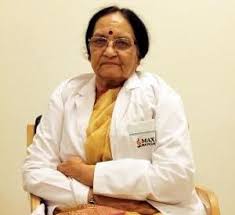Female infertility
Treatment for fertility in female
Medications: Like males, the medicines can considerably be recommended by the doctor to treat infertility in females. Hormonal drugs like Clomifene (Clomid, Serophene) usually help to increase secretions of FSH & LH from the pituitary gland and, in this way, stimulate ovulation. A human menopausal gonadotropin containing both FSH & LH can be injected when there is a problem in the pituitary gland. Gonal-F and Bravelle (FSH) help to control oestrogen production. Similarly, Ovidrel and Pregnyl (Human chorionic gonadotropin) help induce follicles for ovulation.
There is a risk of multiple pregnancies using medications, especially injectable drugs.
Endometriosis: Endometriosis is a painful condition in which the tissues, similar to that of the uterus grow outside the uterus. Endometriosis may result in infertility. There are several options to treat endometriosis, such as medications and surgery. The medications for endometriosis include hormonal contraceptives, progestin therapy, gonadotropin-releasing hormone (Gn-RH) agonists and antagonists, and aromatase inhibitors. The surgery includes conservative surgery in which the endometrial tissues are removed while preserving the ovaries and uterus. Another surgery is a hysterectomy in which the uterus is removed. Both these surgeries may be performed through laparoscopy or open surgery.
Assisted reproductive technology: Intrauterine insemination (IUI) involves the insertion of millions of healthier sperms into the uterus right before ovulation.
An alternative approach is an in-vitro fertilisation (IVF). The mature eggs are fertilised with healthier sperms in the laboratory, and thereafter the developed embryos are to be shifted in the uterus carefully. Frequent blood samplings and hormonal therapy are expected for several intervals.
Intracytoplasmic sperm injection (ICSI) is recommended when the male has a low sperm count and is not enough to naturally fertilise the eggs. Healthy sperm is selectively inserted into a mature egg during IVF. Alternative procedures like GIFT (intrafallopian gamete transfer) and ZIFT (intrafallopian zygote transfer) also have similar approaches.
Assisted hatching: When IVF fails to meet expectations, the embryologist drills a tiny hole in the outermost membrane of an embryo (zona pellucida) that helps the embryo implant on uterine linings and make it able to attach itself to the uterus wall. The assistance is required at an older age when the uterus wall gets thickened and harder.
Laparoscopic or hysteroscopic surgery. Surgery might involve correcting problems with the uterine anatomy, removing endometrial polyps and some types of fibroids that misshape the uterine cavity, or removing pelvic or uterine adhesions.
Tubal surgeries. If your fallopian tubes are blocked or filled with fluid, your doctor might recommend laparoscopic surgery to remove adhesions, dilate a tube or create a new tubal opening. This surgery is rare, as pregnancy rates are usually better with in vitro fertilization (IVF). For this surgery, removal of your tubes or blocking the tubes close to the uterus can improve your chances of pregnancy with IVF.



































